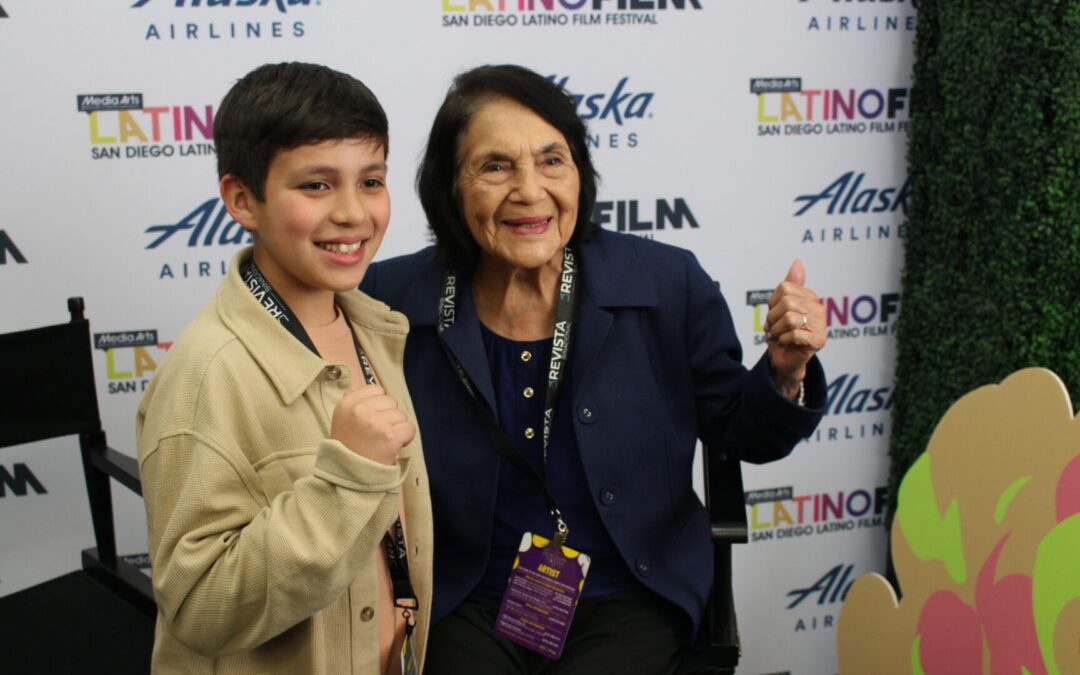WHO IS DOLORES HUERTA? THE WOMAN BEHIND “¡SÍ SE PUEDE!”
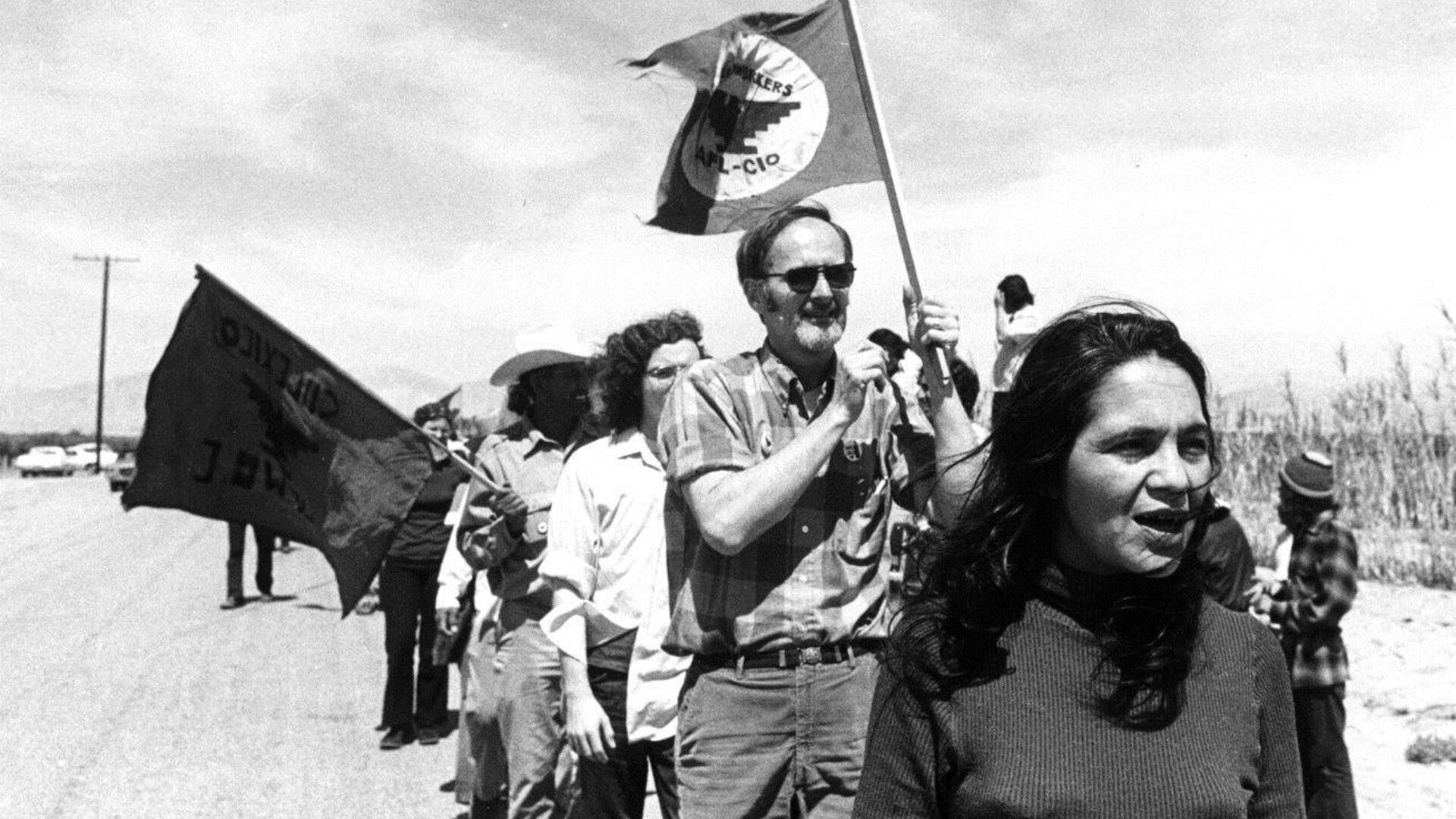
Dolores Huerta was born into a family of civil servants and farmworkers in New Mexico, where her father worked as a miner and agricultural laborer before becoming a State Assembly member. Her mother, a hardworking provider, juggled multiple jobs to support their home. Seeking new opportunities, the family moved to California’s Central Valley, where Huerta pursued her education and became a teacher. It was in the classroom that she witnessed a harsh reality—children who harvested the nation’s food yet suffered from malnutrition themselves. This injustice ignited her lifelong commitment to advocacy.
By 1955, at just 25 years old, Huerta founded the Stockton Community Service Organization, spearheading legislative victories such as Spanish-language driver’s license exams and bilingual voting materials. In 1962, she partnered with César Chávez to establish what would become the United Farm Workers (UFW), a movement dedicated to securing basic rights for immigrant laborers, including sanitary facilities, healthcare, and fair wages. As vice president of the UFW, she led boycotts, labor strikes, and negotiations—most notably the 1968 boycott of Taylor grapes, which resulted in a 60% wage increase, healthcare benefits, and pesticide regulations. Amidst these victories, she also raised 11 children, proving that motherhood was not a limitation but a source of strength.
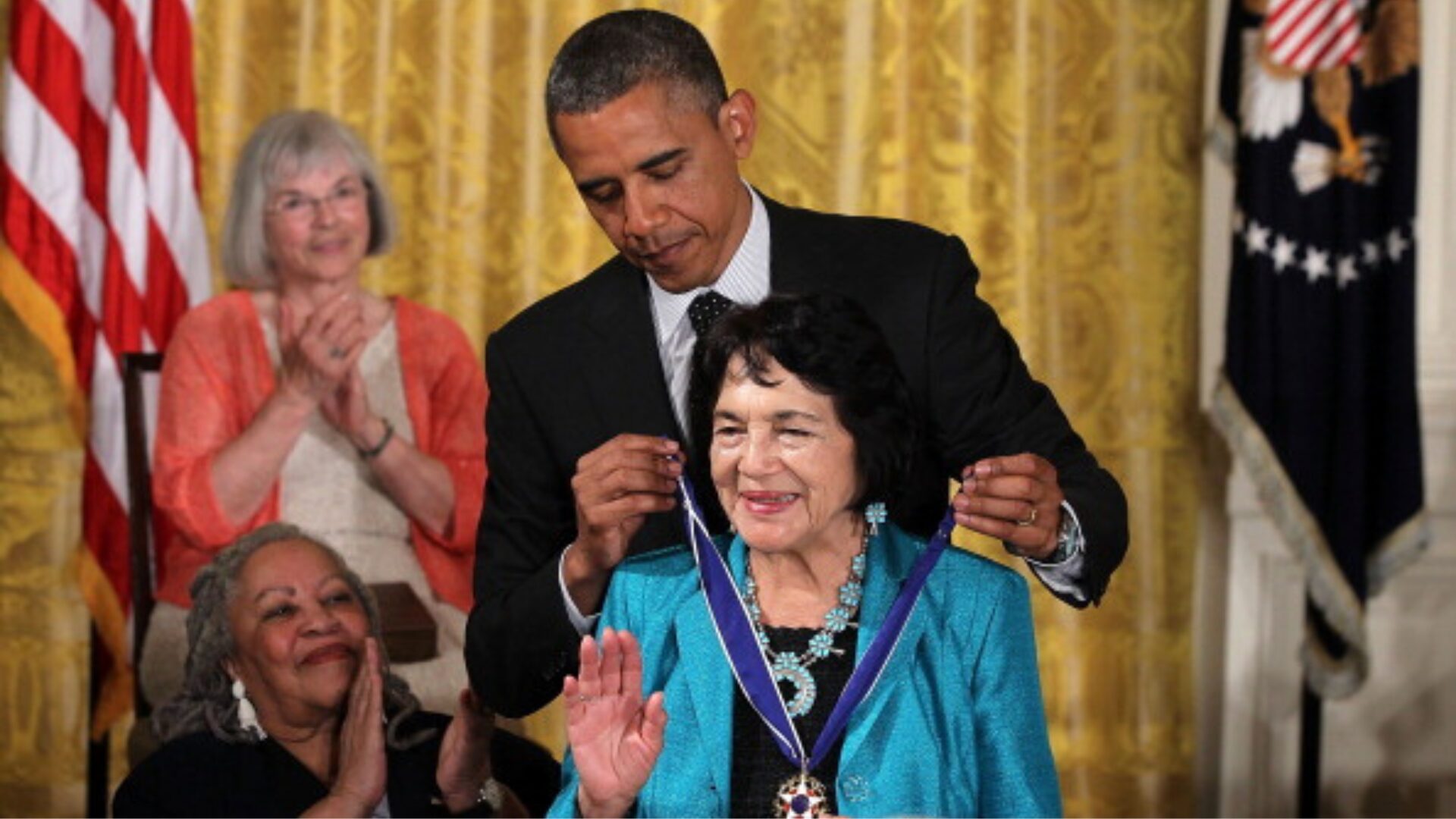
Huerta’s activism came at a cost. During a peaceful demonstration in San Francisco, a police officer struck her with a baton, breaking two ribs and severely injuring her spleen. However, even physical violence could not deter her resolve. Following César Chávez’s passing in 2002, Huerta expanded her mission by founding The Dolores Huerta Foundation, a grassroots organization dedicated to community organizing and leadership development.
In 2012, her decades of unyielding dedication were recognized when President Barack Obama awarded her the Presidential Medal of Freedom, honoring her tireless fight for justice and human rights.
DOLORES HUERTA’S LEGACY: EMPOWERING GENERATIONS FOR SOCIAL CHANGE
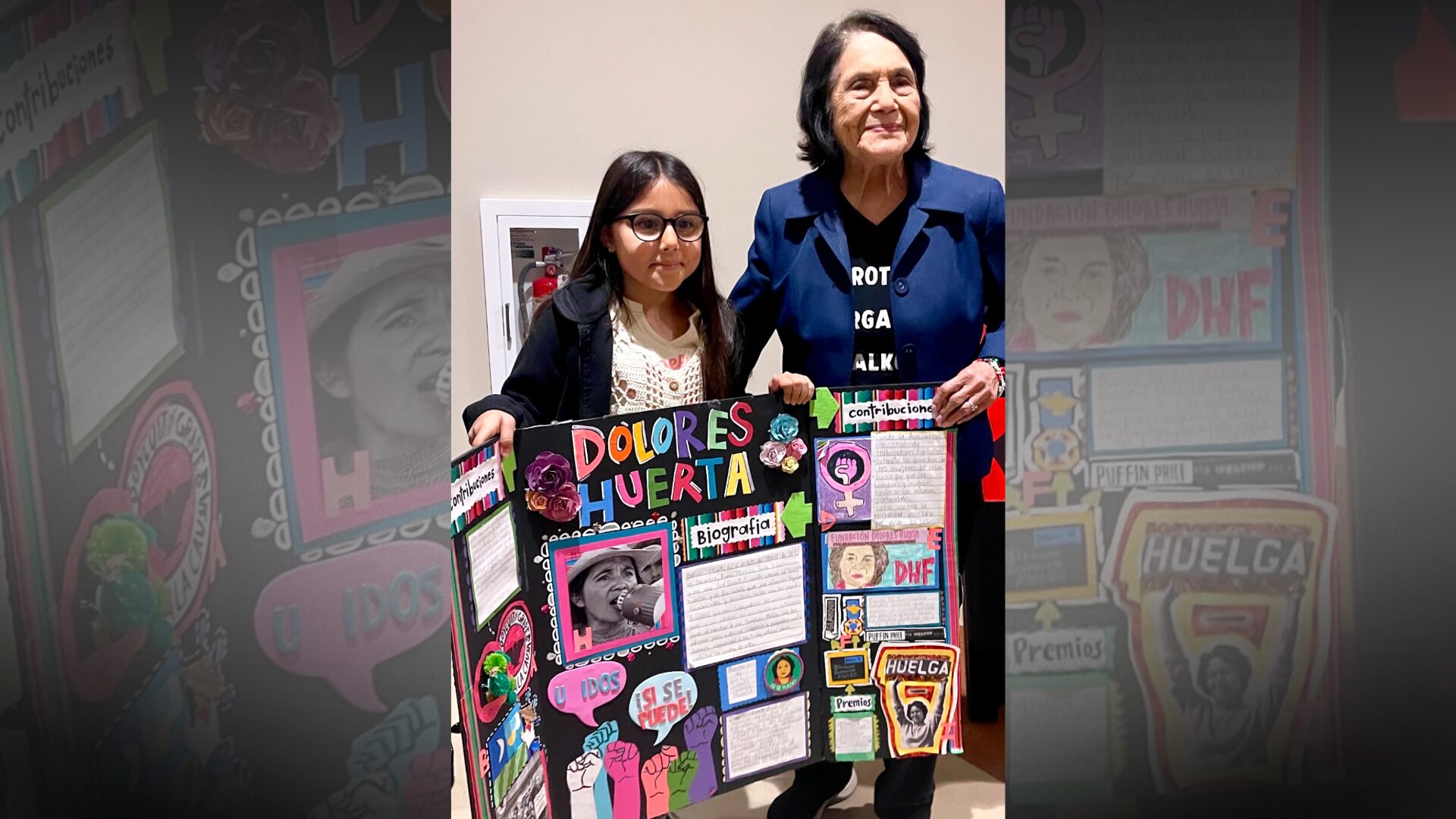 Dolores Huerta’s commitment to social justice has defined a lifetime of activism, and her influence only grows stronger with time. Through the Dolores Huerta Foundation, she continues to empower a new generation of advocates, teaching them how to organize and drive meaningful change in their communities.
Dolores Huerta’s commitment to social justice has defined a lifetime of activism, and her influence only grows stronger with time. Through the Dolores Huerta Foundation, she continues to empower a new generation of advocates, teaching them how to organize and drive meaningful change in their communities.
Unstoppable at 94, Huerta takes pride in knowing that the union workers who stood on the frontlines—those who marched, protested, and endured arrests and violence during the huelgas—will retire with pensions, a testament to the battles they fought. Her journey, from the agricultural fields of California to the halls of political power, exemplifies an unrelenting fight for justice. She has broken barriers, redefined the role of women in activism, and compelled industries and governments to honor the dignity of laborers. Her legacy is one of resilience, courage, and an unshakable commitment to human rights.
POWER IN UNITY: AMPLIFYING DOLORES HUERTA’S REVOLUTIONARY VOICE
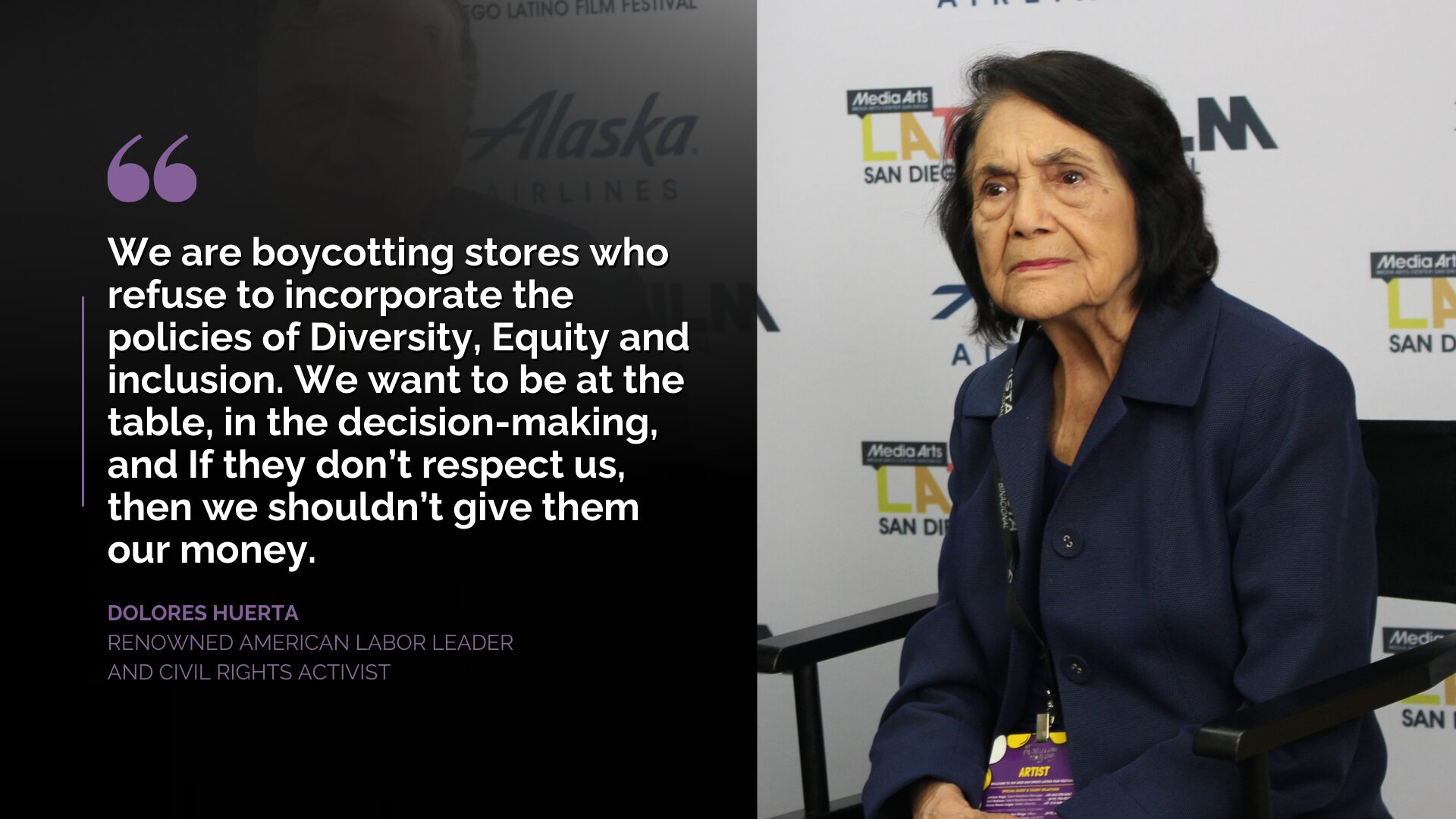
Celebrities and political leaders have rallied behind Dolores Huerta, amplifying her message of change, unity, and social justice through the Dolores Huerta Foundation. Among her supporters is President Barack Obama, who embraced her iconic slogan, “Sí se puede,” translating it to “Yes, we can!” during his presidential campaign.
Artists and activists such as Rosario Dawson, Becky G, America Ferrera, and Cristela Alonzo, along with Spanish rock legends Maná, have also championed her mission, using their platforms to celebrate and spread her call for equity.
INTERVIEW WITH DOLORES HUERTA
During these difficult times for the Latino community, what would you say to the new generation fighting for social justice?
I would tell the new generation that we need their energy, their euphemism, and their hope more than ever. They are the ones that will have to take this on by organizing and educating people, and hopefully by becoming activists or advocates themselves. ¡AHORA ES CUANDO¡ THE TIME IS NOW!
People have to organize, come together and make sure to vote in the election and elect good people to Congress and the US Senate. The new generation should be able to demonstrate, as they are doing now, but in this time we have to level up somewhat, increase the activism and energy. Be part of a civil movement to let “them” know that we can’t continue to live in these conditions they have set up for us. We are not going to accept that.
In this divided landscape. How can people come together to make real change?
I was born during the depression. I have seen a lot of dark times in the seventies, with people divided and students getting shot by our own national guard. We all have seen the photos of the people who were arrested and deported to horrible prisons in El Salvador, our undocumented brothers continue to be picked up. El Norte came at a very important time, the family pain portrayed affects us all.
As long as we all stay together, and all of us keep working, and stay activists under this (administration), we are going to come out stronger against all of this because now we know that in this country here and we can’t live under the governance of corporations. We have to keep thinking forward, know what we are going to do to make things change.
What’s the best way to support the Dolores Huerta foundation?
We have a website doloreshuerta.org where they can go and join us. Right now we have a lot of brothers and sisters in the south helping boycott Target, Home Depot, Amazon and all the other stores refusing to incorporate the policies of Diversity, Equity and inclusion. Because we want to be at the table, we want to be in the decision-making process.
We don’t agree that they want to block our people, people of color, and transgerder people. We don’t accept that! If they do not respect us, then we shouldn’t give them our money.
WHAT’S NEXT FOR DOLORES HUERTA: BIOPIC, 95TH BIRTHDAY CELEBRATION, AND THE FIGHT FOR EQUITY
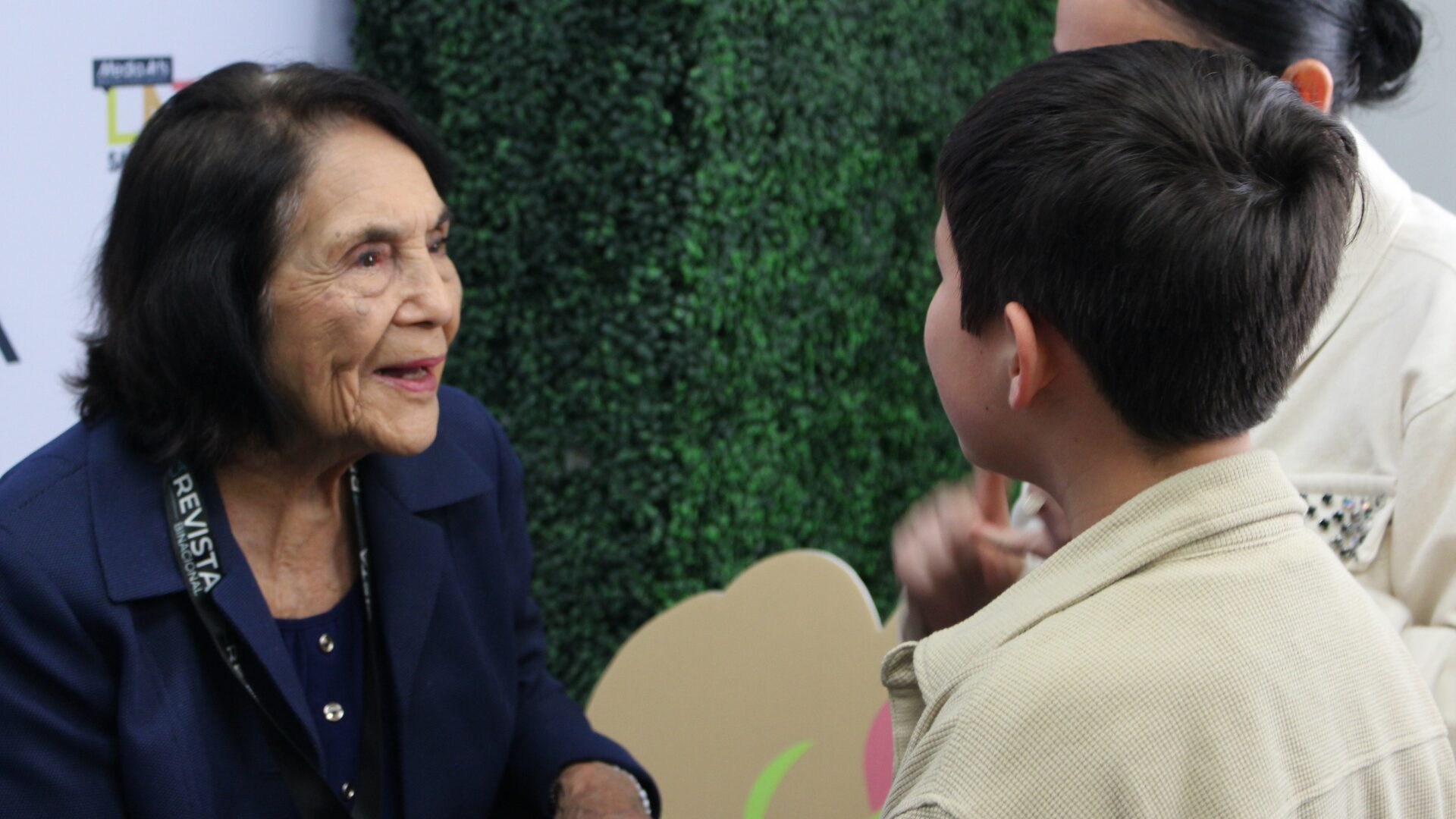
Dolores Huerta recently joined filmmaker Gregory Nava, writer and director of El Norte, for a Q&A session at the 32nd San Diego Latino Film Festival, where the sold-out audience witnessed her unwavering call to action. The civil rights icon closed the discussion with a powerful reminder: People power is the key to real change. As she energized the crowd, she asked, “Use your people power to save our country! ¿Se puede?”—to which the audience responded in a resounding “¡Sí se puede!”
During the event, Nava also revealed his latest project: a biopic about Dolores Huerta’s extraordinary life. The highly anticipated film, currently in development, aims to bring her story of activism, resilience, and justice to the big screen. Supporters can follow the journey of this project and get involved by following @doloreshuertafeaturefilm on Instagram.
A week from her 95th birthday, Huerta continues to be a force for change, advocating for workers’ rights and standing against corporations that oppose Diversity, Equity, and Inclusion (DEI) initiatives. As she looks ahead to her 95th birthday, her message remains clear: the fight for justice is far from over.


